More bodies are expected to be found as the camp and its surroundings are fully examined, one rescue worker told Phuketwan by telephone from the hillside near Pedang Besar.
It is believed most of the dead are Rohingya boatpeople from Burma (Myanmar) who died from disease or starvation while awaiting payment of ransoms to be smuggled into Malaysia.
''About 200 Army, police and rescue workers have had to climb on foot for 50 minutes up the hill into the jungle,'' said Sathit Kamsuwan, of the Maikom Sadao municipal rescue service.
''They will have to carry the bodies out because ambulances can't cross the terrain. We have counted 32 grave sites, plus one body above the ground so far. There is one survivor.''
The lone man alive in the open-air camp was believed to have been left to die when traffickers fled. His muscles are severely wasted and he has been taken to a hospital for treatment.
People who have escaped from the human trafficking camps in the jungles and plantations of southern Thailand have told Phuketwan and other news organisations of rapes, torture and deaths that take place there.
Today's grim discovery appears to be the worst case so far - and it confirms what escapers have been saying for years about the jungle camps.
Traffickers forced to flee by raiders usually leave the sick and disabled behind to die.
''We believe we will probably find more bodies in the jungle around the camp,'' Khun Sathit said. As bodies were exhumed they were being numbered, placed in bags and carried down the hillside.
For years, the trafficking of Rohingya and some Bangladeshis has been carried out through Thailand as boatpeople flee repression or poor living conditions in Burma and neighboring Bangladesh.
Recently, the scale of the trafficking has become so large that rickety boats have given way to large, purpose-adapted trawlers, capable of holding hundreds.
Chris Lewa of the Arakan Project, which has for years been tracking departures and interviewing survivors, says the danger now is that many more of the fleeing people are dying at sea.
''We recently interviewed a 15-year-old who spent two months on a boat off the coast of Thailand or Malaysia,'' she said today.
''He says that in his time at sea, 34 bodies were thrown overboard.''
Ms Lewa said that the boy was able to keep count of the number of deaths because he was on a boat with a desalination plant.
The boat was able to convert salt water into drinking water and then pass on the drinking water to two other vessels, anchored at the same spot.
''These 'camp centres' in boats at sea are the result of pressure mounting on traffickers in Thailand and Malaysia,'' Ms Lewa said.
''In Thailand, traffickers are cutting the risks and we believe only two or three Thai brokers are still active. At least 20 smugglers have been arrested in Malaysia in the past few weeks.''
She said that on the evidence of survivors she has interviewed, ''dozens of people'' have died in the jungle camps of southern Thailand over recent years.
A clamp by the Army's Internal Security Operations Command in the Burma-Thai border province of Ranong has had some effect. So has the 24-hour human trafficking roadblock set up by Takuapa district chief Manit Pleantong's volunteers in the neighboring province of Phang Nga.
Ms Lewa said she was concerned that international waters were now being used to hold Rohingya and Bangladeshis at sea before delivering them ashore once ransoms had been paid.
The process of getting on a boat and sailing south that once took 10 or 12 days has been extended to a couple of months, during which time captives are kept so tightly confined that their health inevitably deteriorates quickly.
Life in traffickers' camps in the jungle of southern Thailand is no better, with pens in the open subject to bad weather and as little food fed to the captives as possible.
''We understand that no more than 800 people are still being held in southern Thailand,'' Ms Lewa said. ''The sailing season is drawing to a close, with the monsoon approaching and fewer departures now.''
The US State Department, which last year downgraded both Thailand and Malaysia to Tier 3, the lowest rank on its Trafficking in Persons scale, is currently considering pleas for Thailand to be lifted back up to Tier 2.

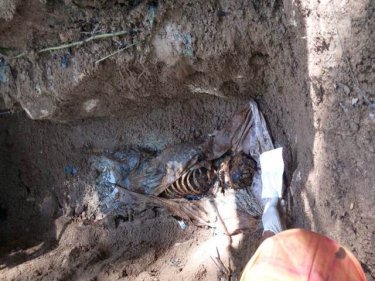







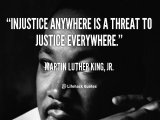
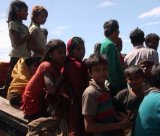
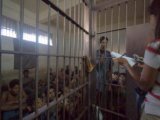

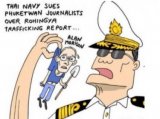
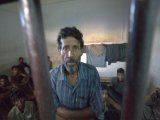
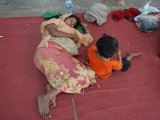

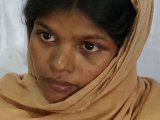
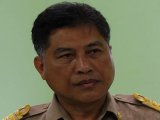

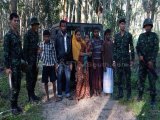




Dear Ed
This is a grizzly but very important story.
I hope it gets picked up in the mainstream Thai media.
Ian Yarwood
Solicitor - Perth, Western Australia
Posted by Ian Yarwood on May 1, 2015 14:04
Editor Comment:
Thai PBS have carried a report already. Other media will follow for sure.